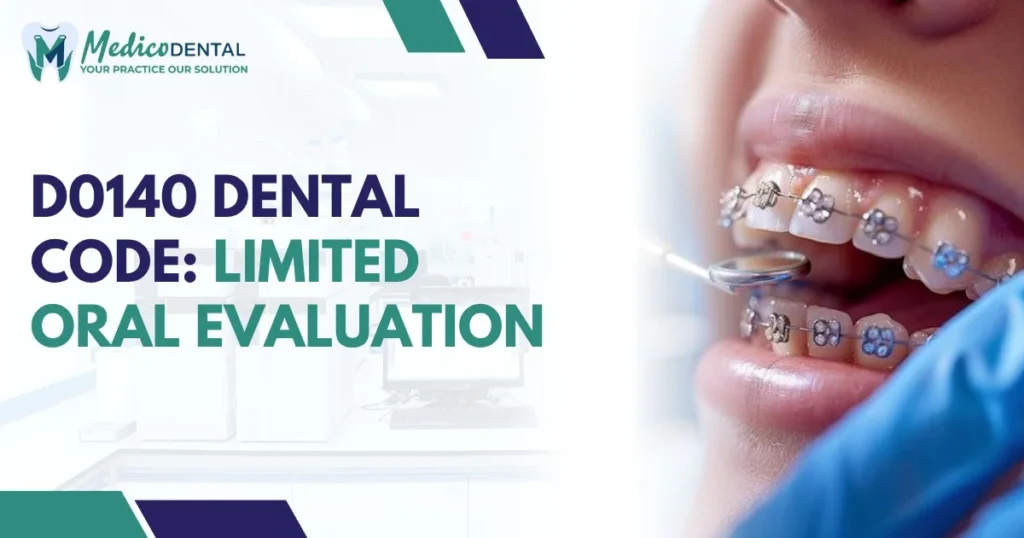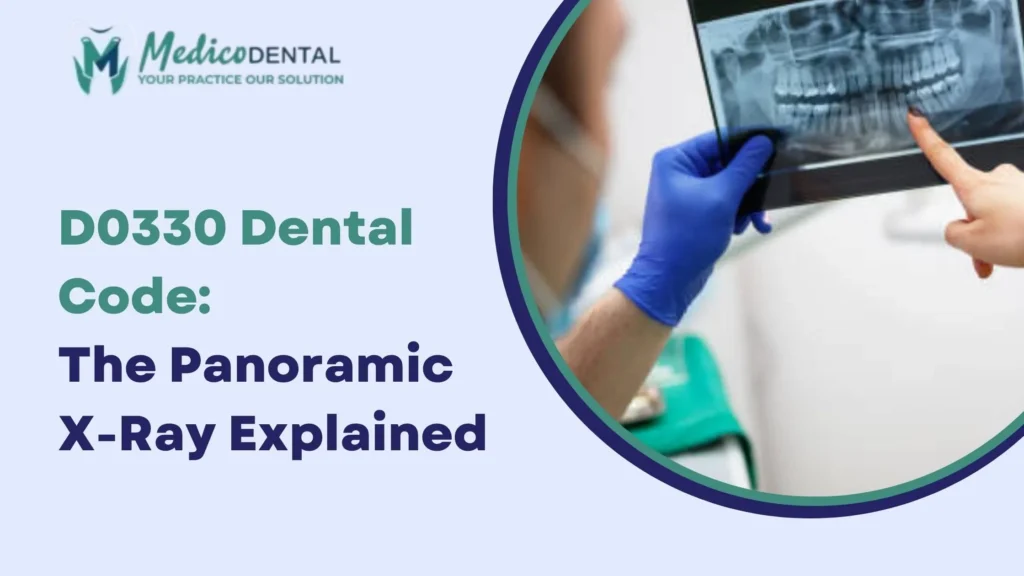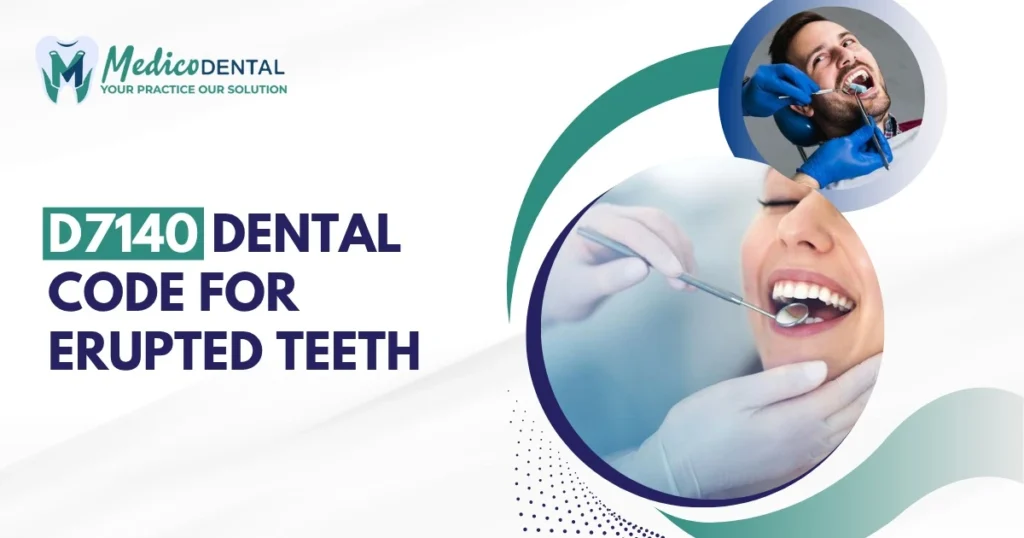The D0140 dental code plays a crucial role in identifying and treating specific dental problems without performing a full mouth examination. Unlike routine check ups, this code is used when patients present with a particular dental issue requiring immediate attention. Understanding D0140 can help patients, dental staff, and insurance providers navigate treatment and billing more efficiently.
What is the D0140 Dental Code?
The D0140 dental code is defined as a “Limited Oral Evaluation (Problem Focused).” Its primary purpose is to assess a particular dental concern, such as pain, infection, or trauma, rather than conducting a comprehensive examination of the entire mouth. Dentists use this code to determine a diagnosis, recommend treatment, and decide whether further evaluations are needed.
Difference Between D0140 and a Comprehensive Exam
While a comprehensive exam (D0150) reviews a patient’s overall oral health, including preventive care and full mouth diagnostics, the D0140 is focused solely on one or more specific problems. This means the dentist addresses immediate concerns like a toothache, broken restoration, or localized infection rather than assessing long term oral health or planning extensive preventive care.
When is D0140 Dental Code Used?
Common Situations and Patient Scenarios
The D0140 dental code is often applied in cases where a patient needs prompt evaluation for a particular dental problem. Some common scenarios include:
Toothache or Dental Pain
Patients experiencing acute tooth pain, sensitivity, or discomfort may require a focused examination. D0140 allows the dentist to pinpoint the cause and recommend treatment quickly.
Gum Infections
When patients present with swollen, bleeding, or painful gums in specific areas, D0140 enables targeted assessment of the affected tissues to prevent worsening infection.
Suspected Cavities
For localized tooth decay or suspected caries, dentists use D0140 to evaluate the tooth, confirm the diagnosis, and plan appropriate restorative treatment.
Broken Dentures or Dental Prosthetics
Patients with damaged dental appliances often need immediate evaluation of the affected area. D0140 covers examinations focused on these problems to restore function and comfort.
Procedure for D0140 Dental Code
Step by Step Examination Process
The D0140 evaluation follows a structured process to address the patient’s specific complaint effectively.
Patient History and Assessment
The dentist first reviews the patient’s medical and dental history, asking targeted questions about pain, duration, previous treatments, and related symptoms.
Physical Examination
Next, the dentist inspects the mouth, teeth, gums, and affected areas. This examination is problem focused, meaning only the areas causing concern are thoroughly evaluated.
Diagnostic Tests (X rays, Imaging)
If needed, the dentist may order X rays or other imaging studies to confirm the diagnosis and determine the best course of treatment for the specific issue.
Billing and Insurance for D0140 Dental Code
How D0140 is Billed
The D0140 is billed as a stand alone procedure for problem focused exams. It reflects the time and resources spent on evaluating a specific dental concern rather than a full mouth preventive exam.
Stand Alone vs. Combination with Other Codes
In some cases, D0140 can be used alongside other procedure codes if additional treatments or procedures are performed during the same visit. Proper documentation is critical to ensure accurate dental billing.
Insurance Coverage and Reimbursement Variations
Coverage for D0140 may vary between dental insurance providers. Some plans fully cover problem focused evaluations, while others may require co pays or limit the number of evaluations per year. Patients are advised to check with their insurer before treatment to understand their financial responsibility.
Best Practices for Dentists and Billing Specialists
Documentation Tips for Accurate Claims
Accurate documentation is the cornerstone of smooth billing for D0140. Dentists and billing specialists should clearly note the patient’s complaint, findings from the problem focused evaluation, and any diagnostic tests performed. Include specifics such as affected teeth, nature of pain or infection, and recommended treatment. Detailed documentation ensures insurance claims are processed quickly and reduces the risk of denials or audits.
Avoiding Common Billing Mistakes
Common mistakes in billing D0140 include using it for a full mouth examination, duplicating claims with preventive exams, or failing to properly document the problem focused evaluation. To avoid these, always confirm the patient’s symptoms align with the code, submit claims with clear documentation, and ensure D0140 is not billed alongside unrelated procedures unless justified.
Key Differences Between D0140 and Other Dental Codes
D0140 vs. D0150 (Comprehensive Oral Evaluation)
D0140 is problem focused, addressing a specific dental concern, whereas D0150 is a comprehensive exam, evaluating the patient’s overall oral health. D0150 involves a full mouth assessment, including preventive care, treatment planning, and diagnostic imaging for all teeth, while D0140 is limited to the area of concern only.
D0140 vs. D0170 (Re Evaluation by Dentist)
D0170 is used for a re-evaluation of a previously treated condition or for follow up after a short term problem was addressed. D0140, in contrast, is for the initial assessment of a specific dental issue. Proper distinction between these codes helps ensure accurate billing and avoids insurance disputes.
Conclusion
Proper use of the D0140 dental code ensures that patients receive prompt, focused care for urgent dental issues while maintaining billing accuracy. Dentists and billing specialists must follow documentation best practices, distinguish D0140 from other codes, and submit claims carefully. Doing so not only streamlines insurance processing but also enhances patient trust and satisfaction by addressing problems efficiently and effectively.
FAQs
Can D0140 be Used for Pediatric Patients?
Ans. Yes. D0140 can be applied to pediatric patients whenever a child presents with a specific dental issue, such as tooth pain, infection, or trauma, that requires focused evaluation.
Is a Follow Up Required After D0140?
Ans. A follow up is not automatically required, but it may be recommended depending on the dentist’s findings. If treatment is initiated or further evaluation is necessary, the dentist may schedule a follow up visit.
How Often Can D0140 be Billed for the Same Patient?
Ans. There is no strict limit on the number of times D0140 can be billed. However, it should only be used when a new or unresolved problem arises. Insurance providers may scrutinize repeated claims, so proper documentation is essential.



